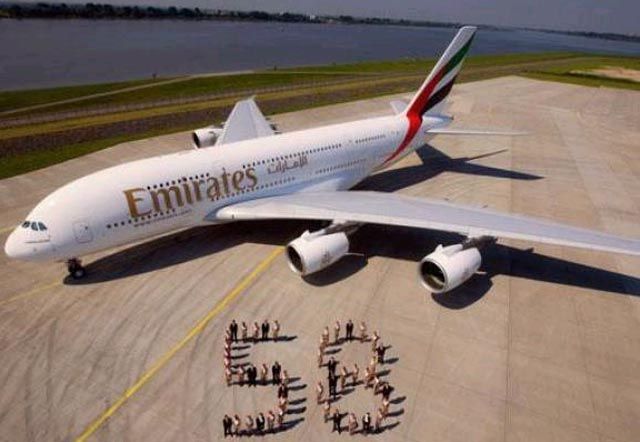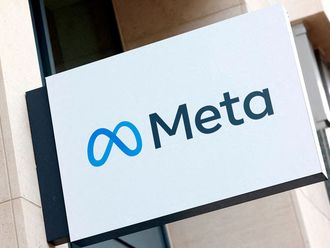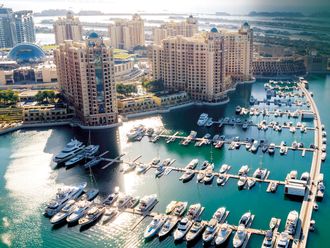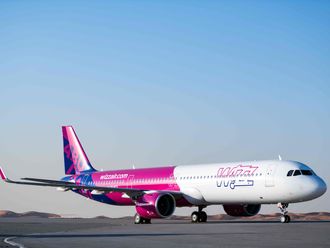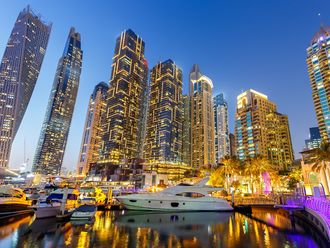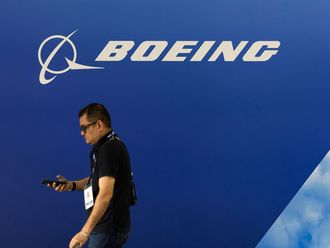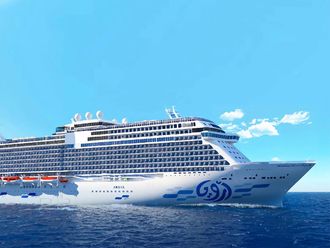Dubai: Emirates, the biggest Arab carrier, yesterday said it is confident that its profits will cross $1b this year.
Emirates Group Vice-Chairman Maurice Flanagan said: "We just announced our first-half results, which are very good and our second-half results will even be better, and as our chairman said, our profits will cross $1 billion this year."
Flanagan was critical of the media outcry over Dubai World's restructuring. There's been a "hate Dubai week", gauging by the global media coverage of Dubai World debt restructuring and Dubai will navigate itself out of the situation soon.
"It has been a ‘hate Dubai week' — I hate to say, especially the way the international press has portrayed the emirate," Flanagan told Gulf News.
"I'm confident that Dubai will steer out of the situation soon and there will be more sensible news coverage in European, especially the British, press."
Emirates has a healthy cash flow of more than $2 billion that will help it to finance future aircraft acquisition.
Emirates, which has a fleet of 139 aircraft, has a $50-billion order book for more than 225 aircraft.
Flanagan, who helped launch Emirates in 1985, says the airline will not be affected by the current situation which has pushed credit default swaps up — as borrowing could become more expensive. A fair number of aircraft in the Emirates fleet have been financed by banks.
"I do not see that happening to us as we have a strong balance sheet and, even in the economic downturn, we made profits," he said.
Meanwhile, the International Monetary Fund (IMF) has welcomed the UAE Central Bank's move to inject more liquidity into the financial system.
"We are continuing to monitor the situation following the unexpected announcement by the Government of Dubai regarding a standstill on the debt of Dubai World and its Nakheel subsidiary, which has had an adverse impact on financial markets," it said in a statement.
The UAE Central Bank yesterday told all banks operating in the UAE that it has made provisions for fresh liquidity at 50 basis points above the Emirates Inter-Bank Offered Rate (Eibor), should they need more cash.
"The United Arab Emirates is a strong resource-based economy and we welcome the announcement by the Central Bank of the UAE making available to banks a special additional liquidity facility. We look forward to further clarification by the authorities towards a cooperative mechanism to address the issues," IMF said.
UAE credit quality sound
Moody's Investors Service yesterday said that the recently announced restructuring of Dubai World's liabilities is unlikely to threaten the credit quality of the government of Abu Dhabi and the federal government of the UAE. Both of these governments are rated Aa2 with a stable outlook.
"Overall macro-economic stability is protected by the country's strong net external creditor position that is bolstered by Abu Dhabi's accumulated oil wealth," Tristan Cooper, Head Analyst for Middle East Sovereigns at Moody's in Dubai, said in a statement.
Significantly, the rating agency notes that the Dubai World restructuring has effectively reduced the government's contingent liabilities by highlighting the limits of government support for indebted state-owned companies.
The main factor underpinning the UAE's high investment-grade sovereign rating is its robust external position.
Moreover, the fiscal position of the UAE, and Abu Dhabi in particular, remains healthy. The UAE's consolidated fiscal surplus has averaged at around 20 per cent of GDP over the past five years and is likely to post a small surplus in 2009 despite a sharp fall in oil export revenues.


